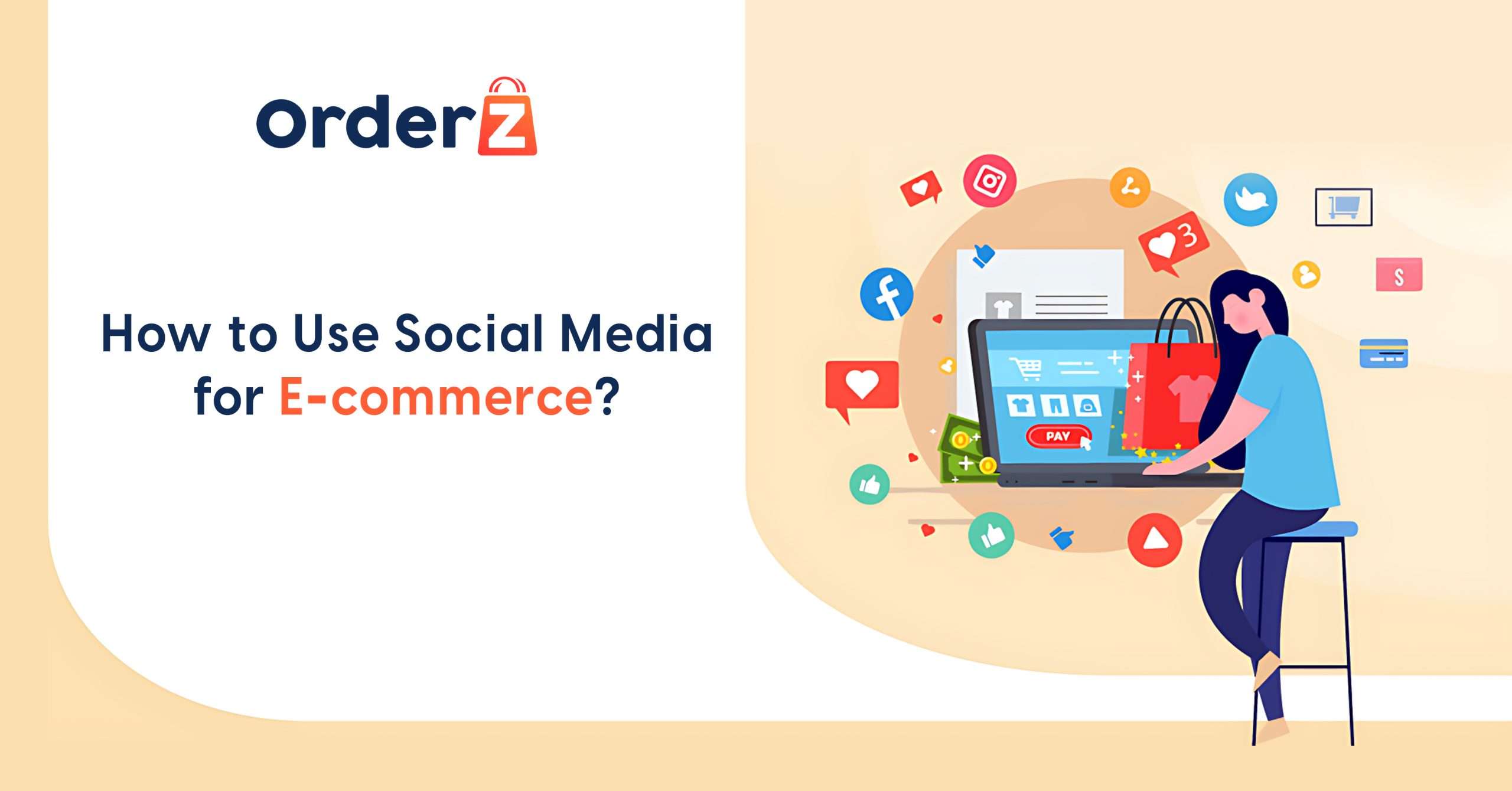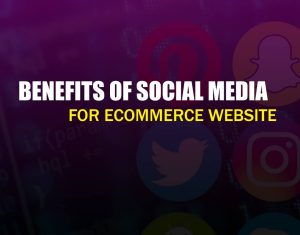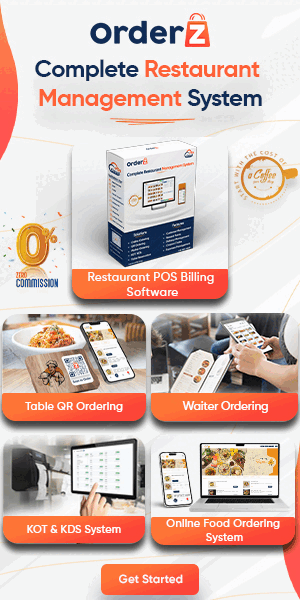In today’s digital age, social media has become a critical component of any successful e-commerce strategy. With billions of users across various social media platforms, there is no doubt that social media can drive traffic and increase sales for your e-commerce business.
However, simply having a social media presence is not enough to achieve success in e-commerce. To make the most of social media, you need to have a well-thought-out strategy that aligns with your business goals. In this blog post, we will discuss some tips and strategies for using social media for e-commerce.
Key Takeaways
- What is social media e-commerce marketing
- 8 Ways You Can Use Social Media for E-Commerce
- Benefits of social media in e-commerce strategies
- In summary
What is social media e-commerce marketing?
Social media e-commerce marketing refers to the use of social media platforms to promote and sell products or services online. It involves using various marketing strategies such as creating engaging content, leveraging influencer marketing, running social media ads, and using analytics to track performance, increase brand awareness, drive traffic, and ultimately generate sales for an e-commerce business.
Social media e-commerce marketing is becoming increasingly popular as social media platforms like Facebook, Instagram, Twitter, and Pinterest continue to grow in popularity and user engagement. These platforms provide e-commerce businesses with an opportunity to reach a wider audience, build brand loyalty, and increase sales.
One of the significant benefits of social media e-commerce marketing is that it allows businesses to interact with customers directly, respond to their inquiries and complaints, and get feedback on their products or services. This helps businesses to improve their products or services and build strong relationships with their customers.
Overall, social media e-commerce marketing is an effective way for e-commerce businesses to connect with their audience, increase brand awareness, and drive sales. By developing a well-thought-out strategy and implementing the right tactics, businesses can leverage the power of social media to achieve their e-commerce goals.
8 Ways You Can Use Social Media for E-Commerce

Set Up Your Social Media Accounts
The first step is to create social media accounts for your e-commerce business. Choose the platforms that your target audience uses most often and set up your profiles. Make sure your profile pictures, bios, and cover photos reflect your brand identity and message.
Identify Your Target Audience
Identifying your target audience is crucial to create effective social media content. Research your audience’s demographics, interests, and behaviour to understand their needs and preferences. This information will help you create content that resonates with your audience and increases engagement.
Create Engaging Content
Social media is all about engagement, so creating engaging content is essential. Use high-quality images, videos, and captions to create a unique and memorable experience for your audience. Use storytelling, humour, and emotions to connect with your audience and encourage them to take action.
Leverage User-Generated Content
User-generated content (UGC) is content created by your customers that promotes your brand or product. It’s an effective way to build trust and social proof with your audience. Encourage your customers to share their experiences with your product or service on social media and share their content on your page.
Use Influencer Marketing
Influencer marketing is a popular strategy for e-commerce businesses. It involves partnering with social media influencers who have a large following and promoting your brand or product through their channels. Choose influencers whose audience aligns with your target audience and create a mutually beneficial partnership.
Use Social Media Ads
Social media advertising is a cost-effective way to reach a wider audience and increase your sales. Platforms like Facebook and Instagram offer targeted advertising options that allow you to reach people based on their demographics, interests, and behaviour.
Provide Excellent Customer Service
Social media is also a platform for customer service. Respond promptly to customer inquiries and complaints to show your commitment to your customers. This will build trust and loyalty with your audience and encourage them to make purchases from your business.
Track and Measure Your Results
Finally, track and measure your social media efforts to see what’s working and what’s not. Use analytics tools to measure your engagement rates, conversion rates, and ROI. Use this information to adjust your strategy and optimize your results.
Benefits of social media in e-commerce strategies
Social media has become an essential tool for e-commerce businesses to reach and engage with their target audience. Here are some of the benefits of using social media in your e-commerce strategies:
- Increased Brand Awareness: Social media platforms offer a vast audience, and with the right strategy, you can reach potential customers that you might not have otherwise. By creating engaging content, you can increase brand awareness and reach a wider audience.
- Increased Engagement: Social media is all about engagement, and e-commerce businesses can leverage this to their advantage. By creating content that encourages interaction and conversation, you can increase engagement, build relationships, and create loyal customers.
- Customer Service: Social media platforms offer a quick and accessible way to provide customer service to your audience. You can answer inquiries, respond to complaints, and offer support, all while building a positive brand image.
- Increased Traffic and Sales: Social media can drive traffic to your e-commerce website, leading to increased sales. With social media advertising, you can target your audience and promote your products or services, leading to more conversions and revenue.
- Influencer Marketing: Partnering with social media influencers can help you reach a new audience and build trust with your customers. By promoting your brand through influencers, you can increase your reach and build brand awareness.
- User-Generated Content: Social media can also help you generate user-generated content (UGC) from your customers. By encouraging customers to share their experiences with your brand, you can increase social proof, build trust, and create a sense of community around your brand.
social media is a powerful platform for e-commerce businesses to connect with their audience and grow their brand. By following the tips and strategies outlined in this beginner’s guide, you can leverage social media to your advantage and achieve your business objectives.
In summary
Social media for e-commerce has become an essential part of the e-commerce business. It’s a powerful tool to help you grow your brand, increase sales, and connect with your audience. By implementing the strategies mentioned in this blog, you can create a strong presence on social media and achieve your business goals.
It’s important to remember that social media is constantly evolving, and you need to keep up with the latest trends and best practices. You need to be consistent in your approach, regularly post high-quality content, and engage with your audience to build a loyal following.
Additionally, always measure and track your results to see what’s working and what’s not. Use analytics tools to monitor your social media performance, and track your engagement rates, conversion rates, and ROI. This information will help you optimise your strategy, make data-driven decisions, and achieve your desired results.
Don’t miss out on the benefits of social media for e-commerce – read this blog and start boosting your sales today.





